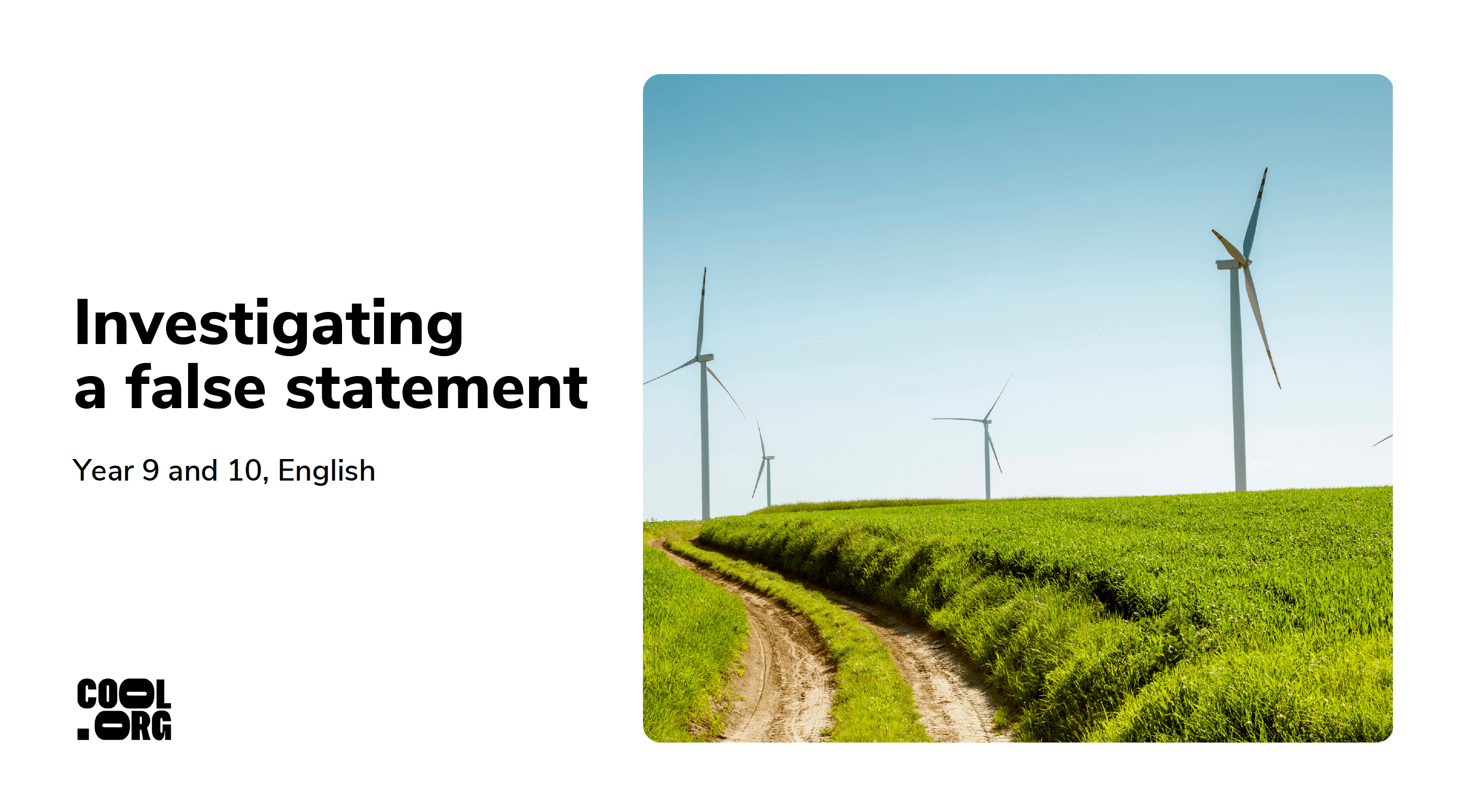Learning intentions
Students will:
- analyse the motivations behind misinformation.
Success criteria
Students can:
- develop a checklist for evaluating credibility in media
- assess the motivations behind different viewpoints.
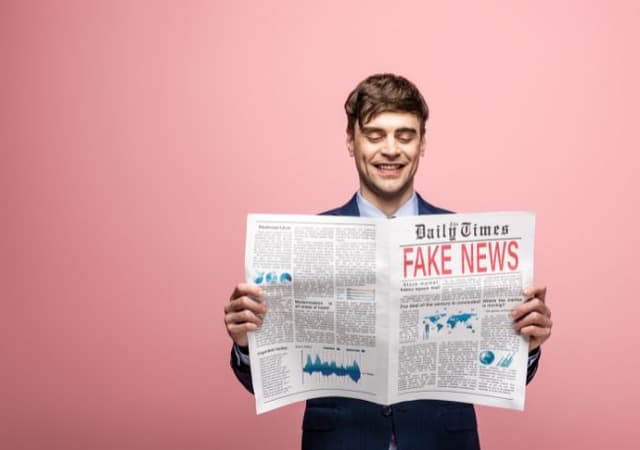
Lesson Plan
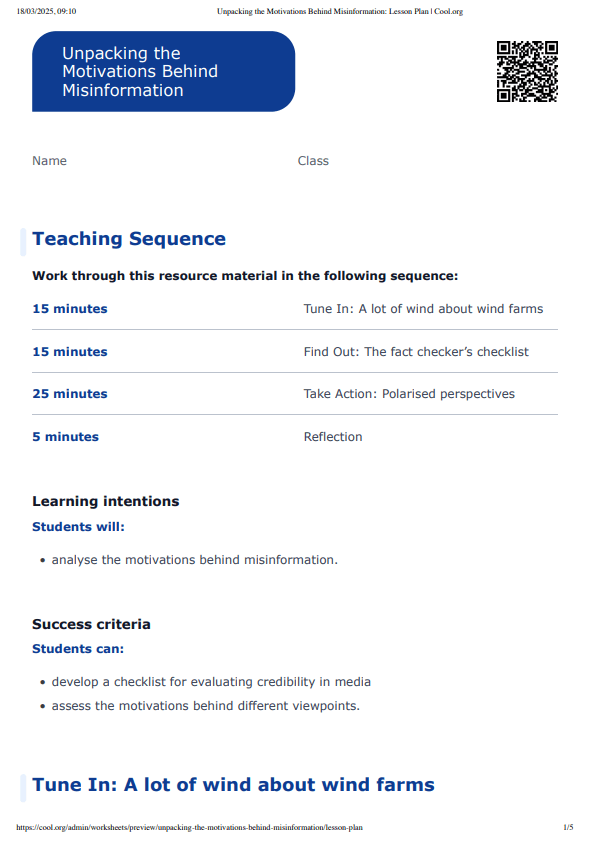
Student Worksheet
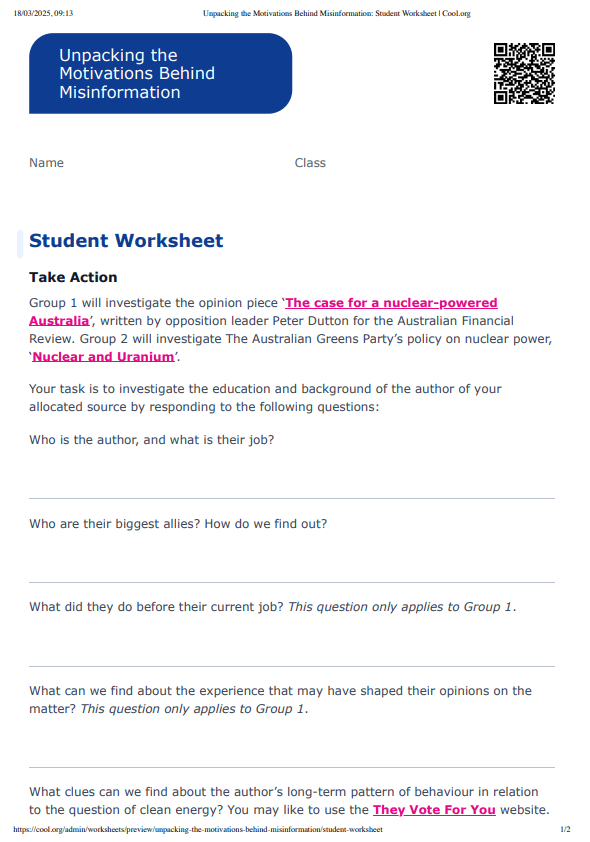
The FLICC Model Visual Explainer
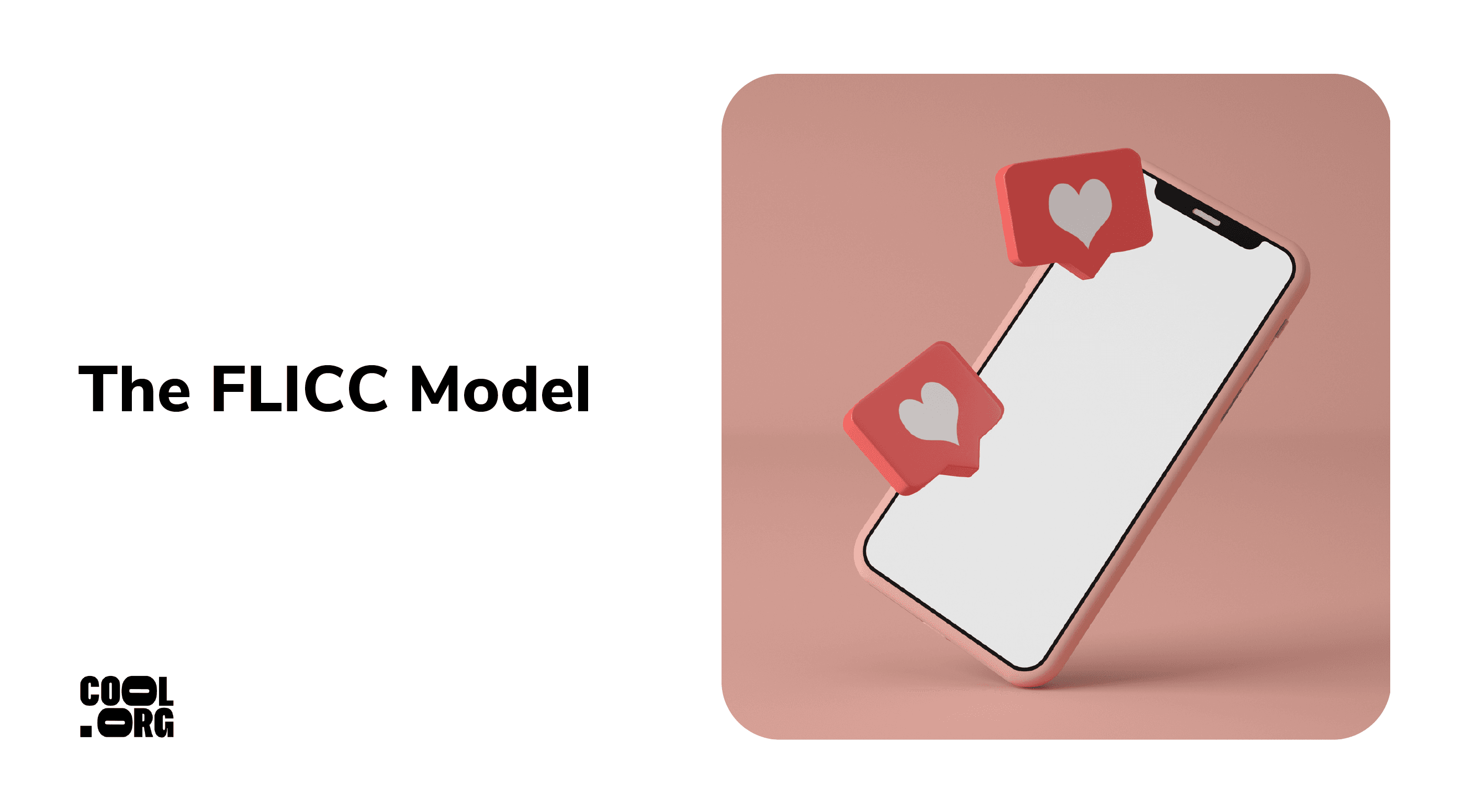
Investigating a False Statement Visual Explainer
